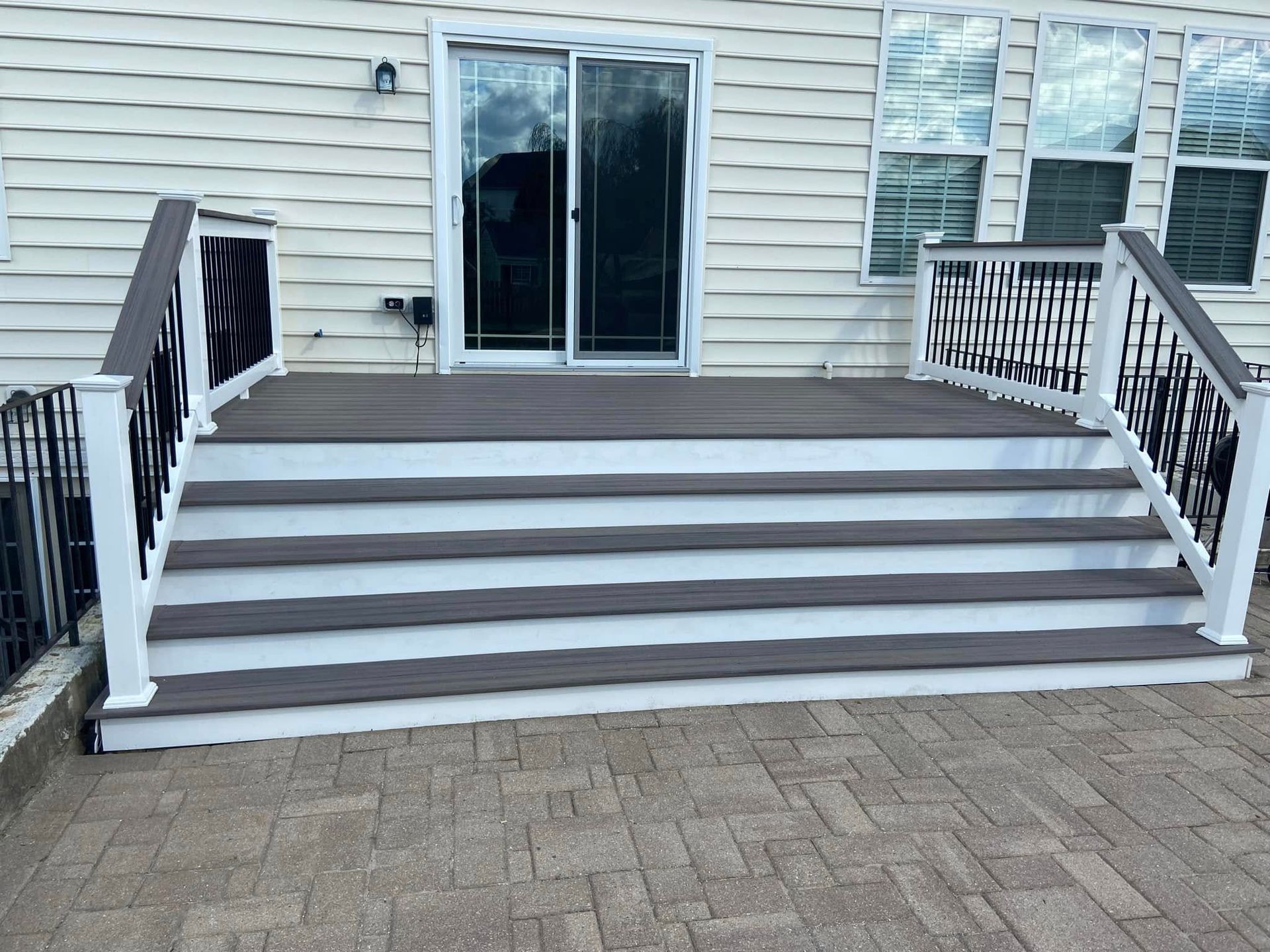How to Choose the Right Deck Material for Your Home
A well-built deck can transform your outdoor space into a functional and stylish extension of your home. But choosing the right deck material is crucial to ensuring durability, aesthetics, and long-term value. With so many options available, it’s essential to understand the pros and cons of each before making a decision. In this guide, we’ll explore the most popular deck materials and help you determine which one best suits your needs.
1. Pressure-Treated Wood: A Budget-Friendly Classic
Pros:
- Affordable and widely available
- Natural wood aesthetic
- Can be stained or painted in various colors
Cons:
- Requires regular maintenance (sealing, staining, or painting)
- Prone to warping, splintering, and rotting over time
- Susceptible to pests like termites
Best for: Homeowners looking for a traditional wood deck at an affordable price with a willingness to invest in maintenance.
2. Composite Decking: Low Maintenance and Long-Lasting
Pros:
- Made from a blend of wood fibers and plastic, making it highly durable
- Resistant to rot, mold, and insect damage
- Minimal maintenance—no staining or sealing required
- Available in a variety of colors and finishes
Cons:
- Higher upfront cost compared to pressure-treated wood
- Can get hot in direct sunlight
- Some brands may fade over time
Best for: Homeowners who want a long-lasting, low-maintenance deck with a modern look.
3. Hardwood Decking: A Premium, Natural Look
Pros:
- Extremely durable and resistant to weathering
- Offers a rich, natural wood aesthetic
- Less prone to warping compared to pressure-treated wood
Cons:
- Expensive upfront cost
- Requires periodic sealing to maintain appearance
- Can be difficult to install due to its density
Best for: Those who love the look of natural wood and are willing to invest in both cost and upkeep.
4. PVC Decking: The Ultimate Low-Maintenance Option
Pros:
- 100% synthetic material resistant to moisture, mold, and rot
- Extremely low maintenance—no sealing, staining, or painting required
- Lightweight and easy to install
Cons:
- Can be more expensive than composite decking
- Some brands may look less natural than wood-based materials
- Can expand and contract with temperature changes
Best for: Homeowners seeking a worry-free deck with maximum durability and minimal maintenance.
5. Aluminum Decking: Durable and Weather-Resistant
Pros:
- Extremely strong and long-lasting
- Resistant to fire, pests, and moisture
- Lightweight and easy to install
Cons:
- Higher initial cost
- Can feel cold underfoot in cooler temperatures
- Limited design options compared to wood and composite
Best for: Those looking for an ultra-durable deck in areas with extreme weather conditions.
Factors to Consider When Choosing a Deck Material
- Budget: Consider both initial costs and long-term maintenance expenses.
- Climate: Some materials withstand humidity, rain, and extreme temperatures better than others.
- Maintenance: If you prefer a hassle-free deck, composite or PVC may be the best option.
- Aesthetic Preference: Choose a material that complements your home’s exterior and landscaping.
- Durability & Lifespan: If longevity is a priority, invest in high-quality composite, PVC, or aluminum.
Final Thoughts
Selecting the right deck material is a crucial step in creating a beautiful, functional outdoor space. Whether you prefer the classic charm of wood, the convenience of composite, or the durability of PVC or aluminum, your choice should align with your lifestyle, budget, and maintenance preferences.
At Garrett Group Construction, we specialize in designing and building high-quality decks tailored to your needs. Contact us today to explore your options and bring your dream deck to life!

Services
Quick Links
Contact Us
Mon - Fri - 7:30AM - 7:30PM
Sat - Sun - By Appointment Only

